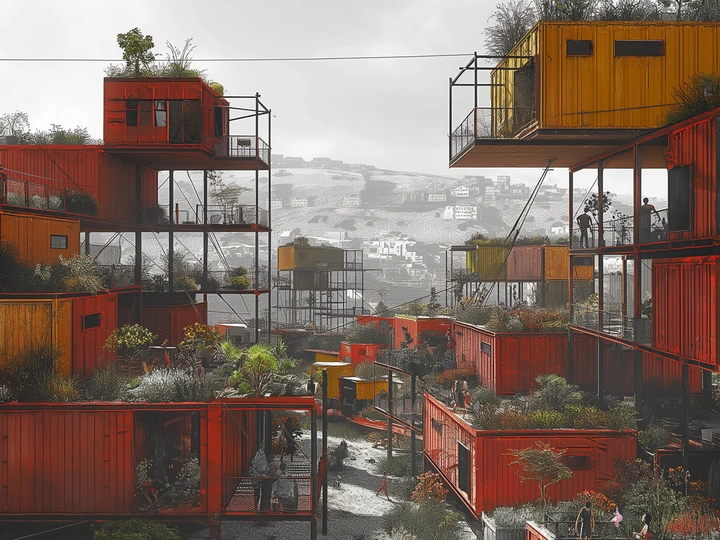Unplanned Cities for an Algorithmic Aproach

Fánel Contreras
Silvana Corro Quintana
Gustavo Díaz Paz
Elisa Giusti
Sebastián Ortiz de Zevallos
Daniel Ramírez Corzo
Luis Rodríguez Rivero
After an unexpected detour into philosophy and engineering, i graduated in architecture from the Pontificia Universidad Católica del Perú (PUCP) with an outstanding mention for the thesis: "Algoritmia, Autourbanización Asistida en el AA. HH. Alto Perú". During my time in university I also participated in Conferences and publications of the philosophy department, always making relations between this two fields.
During my academic years in Perú i used to work in different firms, dealing with restoration, urban planning and publications.
Later on, I was awarded the Industry Scholarship of 50%, that allowed me to do a Master degree in the Institute for Advanced Architecture of Catalunya (IaaC). There I took the X-Urban studio, where we developed a project to question and rethink the idea of the city based on the premise of the "skyscraper". For this project, me and my team were recognized with the "Academic Excellence Award" during the graduation ceremony.
Currently i live in Barcelona, working for WMA architects.
The proposal is to start from the undergrad thesis I did on the subject, where I outlined a series of problems for the community of Alto Perú in Lima and started to exercise solutions that questioned and opposed the "Masterplan" as the main tool for urbanization. As an alternative I would offer iterative tools that would change over time, adapting to the unpredictable organic processes of the unplanned, prioritizing a set of criteria rather than a given design.
Going forward, I would describe how this overwhelmingly complex urban phenomena, that requires a less controlling and malleable approach, challenges basic concepts of the modern urbanization paradigm that are still present worldwide. I would also add to this discussion, how computational design tools not only imply an acceleration in efficiency in technical terms, but are a key component in this rephrasing of the architectural process, based on what was already being said in the MIT Lab during the 70's.
For this proposal I would like to expand the scope of this research by revisiting it in the light of new technologies such as the accelerated development of artificial intelligence and I would like to ask what this phenomenon might look like in the near future, highlighting why it is important to try and think out of the box. Rather than a conclusive solution to the problem, the project aims to raise awareness and provide a starting ground to challenge old notions and call to action.